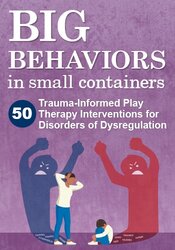Enrol in an online course today for flexible, self-paced learning—no fixed schedule required. Plus, enjoy lifetime access to course materials for convenient revisiting.
Goal Setting with Young Clients in Uncertain Times

It’s not always easy to get young people to see a therapist, let alone encourage engagement. When we get it right, I believe goal setting can be a vital part of creating a good therapeutic alliance. When we get it wrong, however, goal setting can be a huge deterrent for young people.
As we negotiate our way through the pandemic and adapt so many aspects of how we work, perhaps we should also be rethinking how we can best go about helping young people achieve their goals in treatment.
There are many pre-existing goal-setting plans and models. Usually, all include the definition of a goal, together with an outline of small, achievable action steps to get there, as well as some pre and post measures of achievement or change. The main principles are:
• Clarity (a straightforward and clear goal)
• Challenge (the idea that easy goals don’t provide sufficient motivation, so designing a challenging yet achievable goal is important)
• Enhancing commitment to achieve
• Assessing progress
Clarity has been all but absent during this time of confusion, uncertainty and change. To help gain perspective, it might be that we support young people in shifting their focus away from goal setting for the future to managing something tangible in the here and now. This could include helping them re-frame how they see themselves, re-defining what’s important to them and encouraging them to bring back manageable structure to their lives.
Learning to accept and even embrace uncertainty will benefit young clients, many of whom have faced this as an experience for the first time. We can help them think about what can be controlled and what can’t. We can explain that it is normal to want closure, and to experience anxiety when this is not possible, but that learning to tolerate the anxiety of not knowing is part of being human. As well as creating some immediate, mid and long term goals, we can get them to reflect on both positive and negative outcomes, then ask what the most likely scenario might be, or help them come up with more than a Plan A.
Other elements that will be imperative include:
• Avoidance of judgement – especially at a time when young people’s attitudes, application and resilience are being questioned.
• Collaboration – especially since many decisions have been made on behalf of young people, leaving them feeling helpless.
• Focussing on their strengths at a time when confidence is low.
• Providing choice when they are emerging from a time when this has been denied.
• Helping build self-esteem and get back on track from disruption.
• Supporting change even when anxiety is high.
• Providing a focus on re-assessing choices.
• Being open to the fact not all responses are uniform – some young people, for instance, found life in lockdown easier to the challenges they now face as they pick up the pieces of their pre-pandemic life.
A young person recently told me that he was fed up of seeing practitioners who all created (or had passed on to them) a list of his ‘issues’, decided on which were priorities, and then generated a plan of action which he felt too fearful to disagree with in case treatment was withdrawn. This sort of experience may be increasing at a time when need outweighs resources and daunting workloads create urgency and a need for efficiency.
Listening to what most affects the young person so that they feel heard and clearly understood, and working with them to find out what’s most important for them, is now more important than ever. After a time of fear and hopelessness, young people need their dreams resurrected – but they will always remain dreams unless we help them learn ways to build the confidence to act on them.
For more information about Youth Mental Health Day, hosted by Dr Nihara Krause’s charity stem4, visit ymhd.co.uk. Socials: @stem4org

















